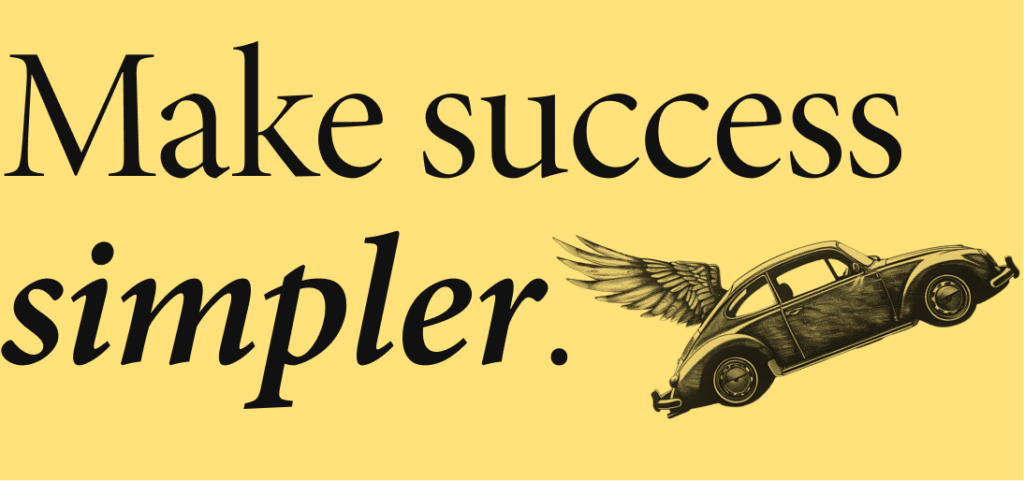Welcome to One Thing Better. Each week, the editor in chief of Entrepreneur magazine (that’s me) shares one way to be more successful and satisfied — and build a career or company you love.
I was traveling with family last week, with no time to write. Today, I’m sharing one of my favorite posts from last summer.
Today’s one thing: Worrying that your work isn’t important enough.
That one thing, better: Recognizing where you are important.

You want meaningful work. But you also struggle to define what “meaningful” is.
Meaningful to who? You? Someone else? Does it feel meaningful now? Yesterday? Compared to anything you did before, or will do later?
You can get lost in questions like this. Many people do.
Just recently, in fact, a friend told me she was struggling with this. Her career has evolved, and she worries that her work today isn’t as impactful as it once was.
So I sent her some thoughts, which included something Steve Jobs wrote to himself as he was dying. She said she didn’t expect it to help, but that it did. “I hope you share it widely,” she told me.
Today, that’s what I’m doing. I’m sending you what I sent her, along with a question you must ask yourself now. Because I have a message for you, whatever you do:
You’re more helpful than you think.
How Important Is Your Work, Really?
Let’s start with my friend.
She is a mission-oriented person. She wants to impact people’s lives. And years ago, she did that very directly. She was the person helping others in crisis. It was hard and draining, but also deeply satisfying. And now, although she still does great work, she does not do that.
She misses it sometimes, she told me. But even more: She wonders if yesterday’s work was more important than today’s.
I’ve heard versions of this from many people. A writer will worry that they don’t help others the way a doctor can. A friend in corporate wonders whether they’re wasting their career, and should take less money in pursuit of a cause.
New to this newsletter? Subscribe!
I believe all of our work is important, but I wasn’t sure how to make my friend feel better. Then, on Twitter, I stumbled upon an email that Steve Jobs sent to himself a year and a half before his death.
To be clear, I am not a Steve Jobs fanatic. I don’t love how he’s become deified. But this email really gave me pause.
Here’s what he wrote:
I grow little of the food I eat, and of the little I do grow I did not breed or perfect the seeds.
I do not make any of my own clothing.
I speak a language I did not invent or refine.
I did not discover the mathematics I use.
I am protected by freedoms and laws I did not conceive of or legislate, and do not enforce or adjudicate.
I am moved by music I did not create myself.
When I needed medical attention, I was helpless to help myself survive.
I did not invent the transistor, the microprocessor, object oriented programming, or most of the technology I work with.
I love and admire my species, living and dead, and am totally dependent on them for my life and well being.
And when I read that, I started to think:
Steve was right. He did not create any of these original things. But very few people in the world do — and yet we still create value. That’s because Steve, like so many of us, built on top.
That’s what a good life is about, really — not just creating, but advancing.
You move others forward too
I sent Steve’s letter to my friend, and then added this note of my own:
Sometimes we are at the very raw nerve of something. The initial creation. The moment someone needs help the most, and if nobody is there to help them, then they are helpless. But we are not all supposed to be there, at that raw nerve. That root. There isn’t even room for all of us there. Most of us are somewhere else on the chain of helping others.
Steve Jobs took what others created, and then created something new out of it. Did the iPhone save a life? No, but the iPhone allowed for someone to make a phone call or send a text that did save someone’s life.
That’s what most of us do. The book we write. The meal we serve. The small thing we did that made someone’s life a little easier. All of it, useful.
As I wrote that, I’d thought about a conversation I had years ago with an entrepreneur who makes candy. He owns a large, recognizable brand, and told me about all the letters he gets from people about this seemingly incidental product.
Candy is just sugar, right? It’s not important. And yet —
People write to share memories of their parents, now gone, who they’d eat that candy with. They write about how, when they’re feeling lost as adults, the candy can transport them back to childhood. They write deep, intimate things about this candy. Because it matters.
This guy didn’t invent candy. He didn’t even invent this candy. He just bought the company, so that it could continue to make the candy, so that people could continue to eat the candy, so that, when it was needed, it was there.
And it’s not just him, of course: Someone markets the candy. Someone packs the candy. Someone ships the candy. Someone cleans the machines that make the candy. Someone hires and manages the people who do all that. Without any of them, the candy doesn’t get made. Without any of them, the people who want the candy have a hole in their life.
So here’s what I want you to do:
If you worry that your work doesn’t matter to others, stop that.
Instead, start with the assumption that it does.
In some small way, even if you’re just fixing something that broke, even if you’re just saving someone time, even if you’re just making someone a little bit happier — whatever it is, assume it matters to someone. Because it does.
Now ask the better question, which is: How can you make that matter even more?
Because you can do that too.
And that’s how to do one thing better.
